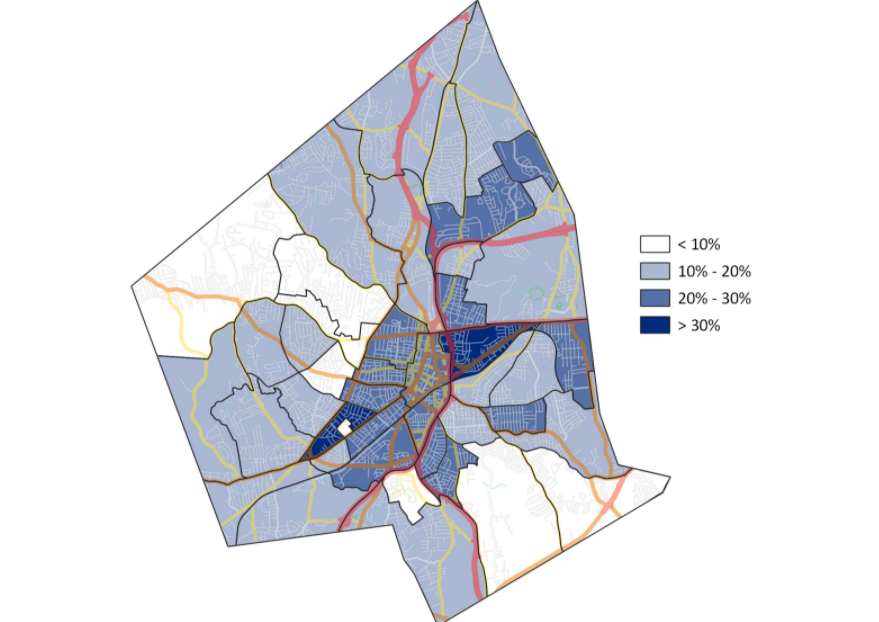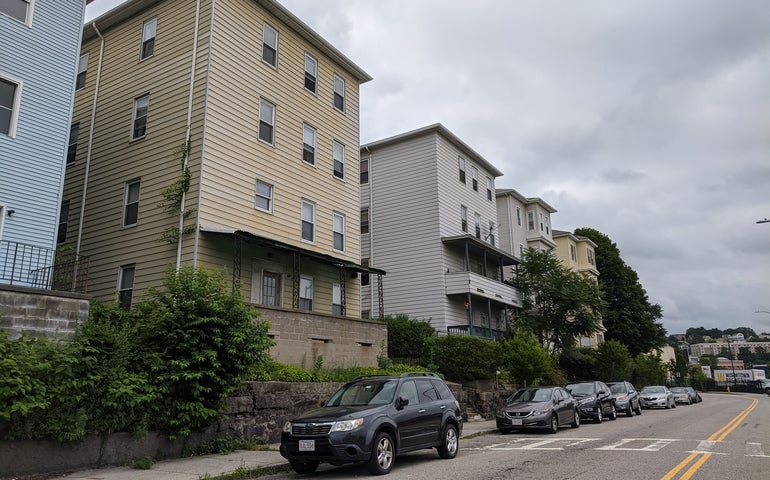In some pockets of Worcester, including in areas off Shrewsbury Street and in Main South, roughly one third or more of households lack internet access, according to a report by the Worcester Regional Research Bureau.
Across the city, 18% of households have no internet access, and one-third lack higher-speed and more reliable broadband internet, the bureau said, citing U.S. Census Bureau data. Roughly three out of five people who aren’t in the workforce don’t have broadband internet access.
The bureau raises a potential solution: a municipal-owned service provider that could ensure residents in poorer areas of Worcester aren’t left without reliable internet access that can help them work from home during a pandemic or use an online connection for any range of purposes.
“The City of Worcester has left broadband to the private sector, even as the internet has become a critical part of most residents’ personal and professional lives,” the report, released Tuesday, said.
“While problems with access, price and speed existed before COVID,” the report said of the pandemic, “an increased reliance on services like videoconferencing, remote learning and telemedicine have laid bare problems that a regional monopoly, lack of infrastructure investment and a prioritization of profits over services have exacerbated.”
A lack of reliable internet access in Worcester has already become a flashpoint during the coronavirus pandemic and the forced shift to online learning. A front-page Boston Globe story in late June highlighted a crisis in Worcester Public Schools, with what it said was thousands of students who were without personal computers for months after classes were moved strictly online. According to the report, 3,500 students said they didn’t have internet access at home, requiring the district to buy that many internet hot spots to give them connectivity.

The research bureau pointed to a number of smaller cities across the country that have started their own internet service provider systems and seen economic and quality-of-life benefits.
Chattanooga, Tenn., for example, with a population nearly identical to Worcester’s, spent $390 million to install a system that allowed download speeds that are 100 times faster than what’s available today in Worcester, the bureau’s report said, citing the Institute for Self-Reliance. In a less ambitious case, the city of Longmont, Colo., with a population half of Worcester’s, spent $45.3 million for internet speeds that are 10 times faster than Worcester’s.
Shrewsbury also provides its own internet service that offers speeds three times faster than Worcester’s at a comparable cost, the bureau said. The report didn’t estimate costs for such a system in Worcester but said the benefits would be “undeniable,” including economic development, drawing companies to a city with far faster computing capabilities. The report suggested city officials conduct a detailed cost estimate in exploring the potential of such a system.
The subject of faster and more reliable internet — and its economic effects — were last studied in 2015 in a report commissioned by the Worcester Regional Chamber of Commerce. That report, which also cited Chattanooga as a success story, recommended a task force of business leaders explore better use of broadband in consultation with the city’s higher education community.
“Worcester has the ingredients for a larger and more robust fiber network that will offer cost effective solutions for all business consumers,” the chamber’s report said.
Today, Worcester businesses and residents have virtually no say in their internet provider. According to the research bureau, 99.9% of the city’s population is served by a single provider: Spectrum.
The research bureau, a nonprofit based at Assumption University, has published research reports to potentially influence public opinion before, including advocating for free bus transportation on the Worcester Regional Transit Authority and another admonishing the city for not adapting practices to make the city more pedestrian- and bicycle-friendly.
In the case of fast and reliable internet, the research bureau may have found a topic that’s better caught the ear of Worcester city officials. Mayor Joe Petty indicated an openness to exploring the issue in a statement provided by the bureau.
“The digital divide represents one of the most pervasive, national equity issues that the coronavirus has exposed. This is an issue of education access, economic mobility, and even health equity,” Petty said. “The City of Worcester, Worcester Public Schools, and our partners in philanthropy at UMass Medical School and Worcester Together have worked to fill the gaps in the digital divide for students in the City of Worcester. This work is ongoing and without a long-term, comprehensive, plan to address this statewide issue, our most vulnerable communities will continue to be left behind.”

